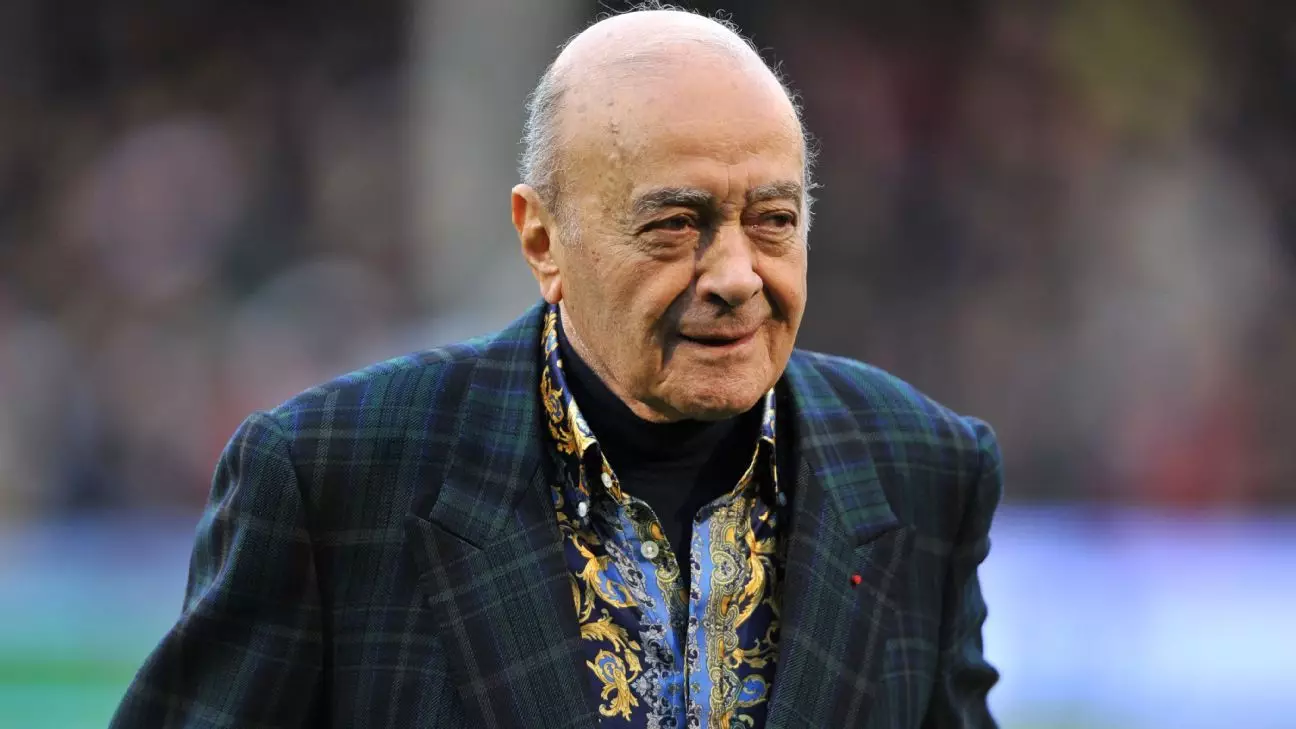In a shocking turn of events, former Fulham women’s team captain Ronnie Gibbons has bravely stepped forward to share her traumatic experiences with the late Mohamed Al Fayed, who owned the football club from 1997 to 2013. Gibbons recounted her alleged sexual assaults that occurred in 2000 when she was just 20 years old, shedding light on a deeply troubling chapter in both her life and the history of Fulham Football Club. During her interviews with The Athletic, Gibbons detailed two separate incidents where Al Fayed allegedly exploited his position of power, highlighting not just an individual assault, but the broader implications of abuse within societal structures.
The allegations against Al Fayed are not isolated; they are underpinned by a disturbing pattern of claims. Reports indicate that at least 40 women have come forward with allegations of sexual misconduct against him, revealing systemic issues of abuse and silence. This growing number, alongside previous claims stretching back nearly two decades, paints a grim picture of a man whose influence seemingly shielded him from accountability. It raises alarm bells about the culture within organizations, particularly in sports, where power imbalances can lead to exploitative relationships. Fulham FC’s response, expressing empathy and support for Gibbons, underscores the necessity of creating safe environments for athletes, particularly women, in predominantly male-dominated fields.
Gibbons described the emotional aftermath of her experiences, expressing a profound sense of sickness and dread that lingered long after her encounters with Al Fayed. In her pursuit of healing, she hopes that by revealing her truth, she will rid herself of the shame and embarrassment that has overshadowed her for years. Her initiative to speak out serves as a powerful reminder of the importance of voicing such experiences. It empowers other survivors, potentially encouraging more victims to come forward and confront their abusers, thereby fostering an environment that challenges the stigma surrounding sexual assault.
Fulham FC’s acknowledgment of the allegations signifies a crucial step in addressing the culture of silence that often surrounds sexual misconduct in various institutions. It raises questions about the measures that organizations should enact to protect their staff and players from predatory behavior. While Gibbons’ bravery in sharing her ordeal is commendable, the onus lies on clubs and organizations to not only support victims but to also implement comprehensive policies aimed at preventing such incidents in the future, ensuring that players can thrive in a safe and respectful environment.
As this narrative unfolds, it compels the sporting community to engage in a deeper conversation about negligence and accountability. The stark reality of Gibbons’ testimony and the weight of the allegations against Al Fayed challenge us to reconsider our societal norms around power and abuse. The ongoing discussions surrounding these claims must not only focus on justice for the victims but also instigate fundamental changes to prevent future abuses of power. In doing so, we may pave the way for a more equitable landscape, where the voices of survivors are not just heard, but amplified, creating a legacy of courage and resilience in the face of adversity.

